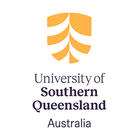Master of Professional Engineering (Electrical and Electronic Engineering)
Master of Professional Engineering (Electrical and Electronic Engineering)
Overview If you want to become a professional Electrical and Electronic Engineer and have a 3-year Australian engineering degree (or recognised equivalent international degree) but no work experience, the UniSQ’s Master of Professional Engineering (Electrical and Electronic Engineering) will provide a pathway. Throughout the degree there is an emphasis on…
Categories
COURSE DESCRIPTION
Overview
If you want to become a professional Electrical and Electronic Engineer and have a 3-year Australian engineering degree (or recognised equivalent international degree) but no work experience, the UniSQ’s Master of Professional Engineering (Electrical and Electronic Engineering) will provide a pathway.
Throughout the degree there is an emphasis on practical experience with hands-on laboratory sessions and 60 days industry experience, preparing you thoroughly for the engineering profession.
You will also complete a research project and dissertation applying all your formal knowledge to a real world problem. Whether this is the exploration of signalling devices for road and rail or the most efficient transmission of power, renewable energy or energy storage, your project will provide insight to the profession of an Electrical and Electronic Engineer.
The research project and dissertation can also be a stepping stone to further higher degrees, such as PhD.
Further study
Master of Professional Engineering graduates are eligible to be considered for higher research degrees such as the Master of Research or PhD studies.
Professional accreditation
The Master of Professional Engineering (Civil Engineering) has been accorded full accreditation at the level of Professional Engineer by Engineers Australia and graduates are eligible for Graduate membership at the Professional Level.
Career outcomes
- With your graduate expertise, you’ll be able to secure a career as a Professional Electrical or Electronics Engineer, making a difference in the world of medical technology, communications, transportation systems, mining resource extraction, power generation and distribution, renewable energy systems, electric vehicle or even spacecraft and satellites.
- With your applied experience, you have the opportunity to work with some of Australia’s biggest companies or venture overseas to work for a global engineering corporation.
REQUIREMENTS
- Australian university three or four-year Bachelor degree in engineering in the relevant specialisation, or equivalent. Or
- Australian university four-year Bachelor degree in engineering in a non-related specialisation, or equivalent.
To be eligible for advanced standing entry:
- Completion of an Australian university four-year embedded honours degree in engineering in the same or closely related cognate specialisation (major).
IELTS (Academic only) – Overall minimum score of 6.5 and no individual band score of less than 6.0; TOEFL (internet based) – Overall minimum score of 90 and no individual skills score of less than 20; Pearson (PTE Academic) – Overall score of 58 and no individual Communicative Skills score of less than 58; Cambridge C1 Advanced C2 Proficiency – Overall minimum score of 185 with no less than 185 in each skill.
EDUCATIONAL INSTITUTION
The University of Southern Queensland (UniSQ) is Australia’s leading regional university. With a strong focus on research, teaching and positive student experience, we provide high-quality flexible programs producing some of Australia’s highest-paid graduates4. Our students benefit from flexible options of on-campus studies, delivered across three campuses in Queensland, Australia, online and multimodal study options and through trusted national and international education partners. UniSQ is ranked in the top 400 universities2 and 58 young universities worldwide3. UniSQ is also rated as a QS 5 Star university and ranked 5/5 stars in Australia for graduate employment and graduate starting salaries1.1 QS Stars World University Rankings, 20242 Times Higher Education World Universities Rankings, 20243 Times Higher Education Young Universities Rankings, 20244 QILT Graduate Outcomes Survey, Postgraduate Results, 2021-2022




